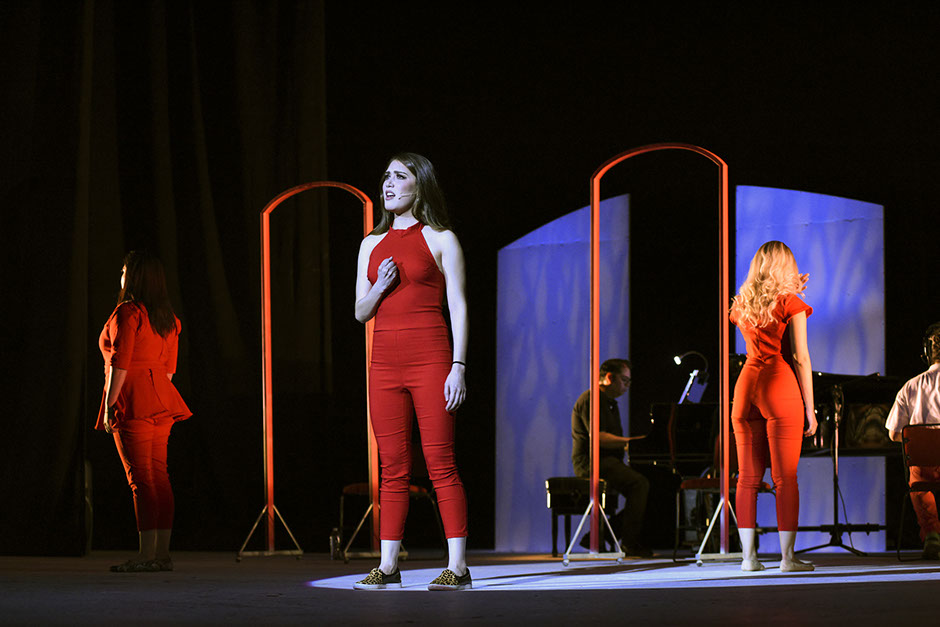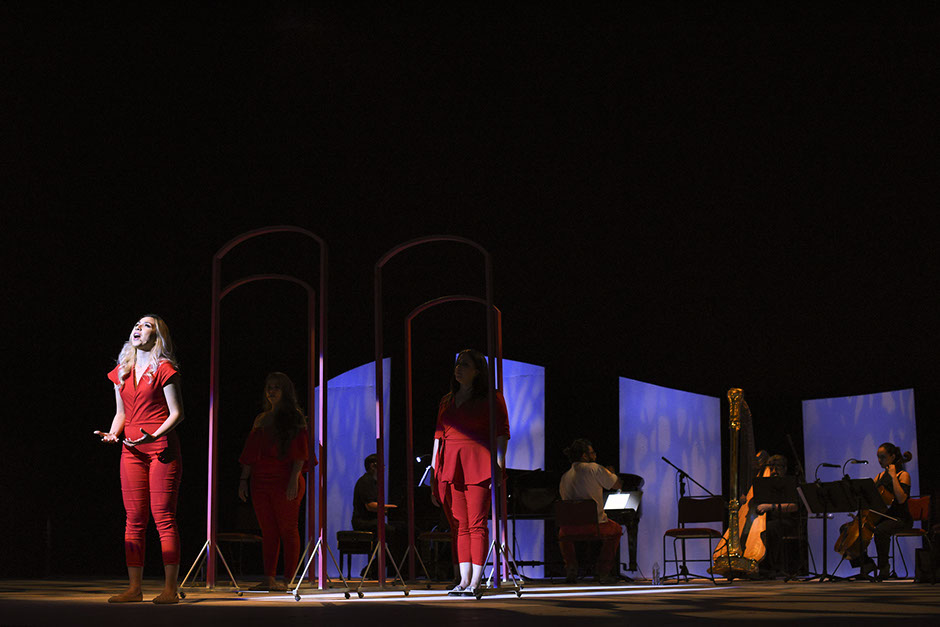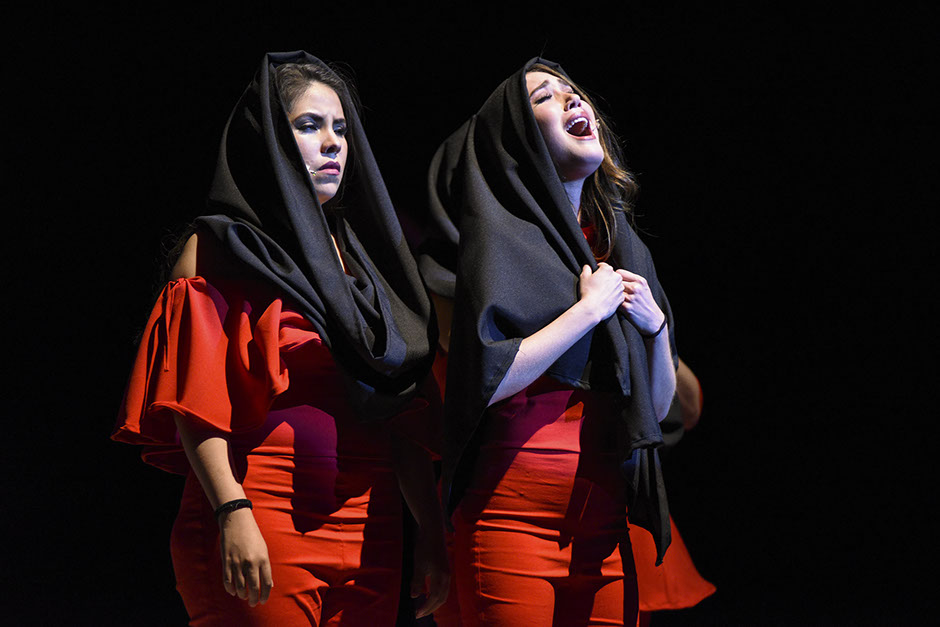by Michael Bracken
It’s worth noting that A Never-ending Line, a female song cycle, at The Players Theatre, was conceived, directed, and composed by Jaime Lozano, a male. Lozano also shares credit for development with Florencia Cuenca and Sami Horneff and for arrangements/orchestrations with Jesús Altamira. That’s a lot of hats for a guy to wear for a work that is, at least in part, a paean to feminine empowerment.
In fairness, Lozano is joined in his endeavor by nine female lyricists: Lindsay Erin Anderson, Neena Beber, Lauren Epsenhart, Sami Horneff, Victoria Kühne, Lisa Mongillo, Marina Pires, Noemi de la Puente, and June Rachelson-Ospa. Three women musicians, Geraldine Anello, Karen Speyer, and Melanie Mason, accompany four female singers: Kat Blackwood, Florencia Cuenca, Emily Esposito, and Erica Wilpon.
It may or may not be a case of too many cooks, but the brew is spoiled in any event. The accompanying music (piano, harp, and cello) doesn’t connect with the sung melodies. It‘s the kind of sound that might work on its own (i.e., without lyrics) for an audience of musicologists, but it does not support the pop vocals that constitute A Never-ending Line.
Frankly, it seems as if it’s not intended to. Arrangements for most songs have vocals and accompaniment at odds with each other, on separate melodic tracks that are not complementary. It sounds very modern but not very good.
The show is presented on a stage that’s bare except for four red wire chairs on wheels, one for each singer. Staging is simple, which works well for this type of entertainment. All four singers pitch in as needed to set up the next number.
Movement is also kept simple but not simple enough. It generally consists of cast members crossing their legs in unison or timed succession or moving their arms simultaneously. It never seems to flow from the music. (Choreography is by Fernanda Aldaz.)
The best movement comes from the red chairs, which have a surprising amount of personality. Sometimes they’re simply rolled into position for the next number, but other times they’re thrust across the stage from one singer to another or otherwise moved with style and flair.
Songs deal with a variety of subjects. Not surprisingly, feminism is a recurring theme. It certainly informs the song cycle’s title, which is also the title of the first song, sung by all four performers. The guiding image is that of a never-ending line of mothers and daughters, getting stronger by the generation, standing on the shoulders of those who’ve gone before.
Some songs, like “Take Care,” sung by Blackwood, deal in man-bashing, as does “Why I’m Single,” in which Esposito, Blackwood, and Cuenca recall nightmare blind dates. They admit, however, by song’s end, that they’ve been on the giving as well as the receiving end of stiffing would-be sweethearts.
Wilpon sings “Diet or Die,” a tongue-in-cheek number about the battle to fit into a wedding dress. Esposito relishes another humorous song, “If You Break My Sister’s Heart,” about a woman warning her twin sister’s new boyfriend to expect major bodily injury if he doesn’t treat her sister right. “You, My Son,” a straightforward ballad about motherhood, is sung by Cuenca.
Lyrics are sometimes clever, occasionally moving, often pedestrian. Singers are, for the most part, fine; direction is efficient. But nothing is remarkable.
Through Sunday, September 17th, at The Players Theatre (115 MacDougal Street). https://web.ovationtix.com/trs/pr/972819 75 minutes with no intermission.





















